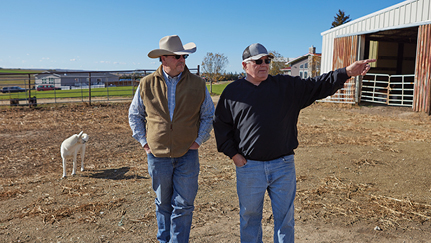Farm & agribusiness resources
Farmland lease relationships: Landowner and lessee
Get help from the #1 Farm insurer in the U.S.1 Tell us a little about yourself and we’ll send you our Farmland Ownership Protection Guide to help you manage the ownership or renting of land.
Making lease agreements a win-win
Watch how a farmland owner and tenant work together to make their partnership work
Our most recent information for new farmland leasers and owners
Get more information
Learn about Nationwide agribusiness insurance
Subscribe to the Ag Insight Center email newsletter
